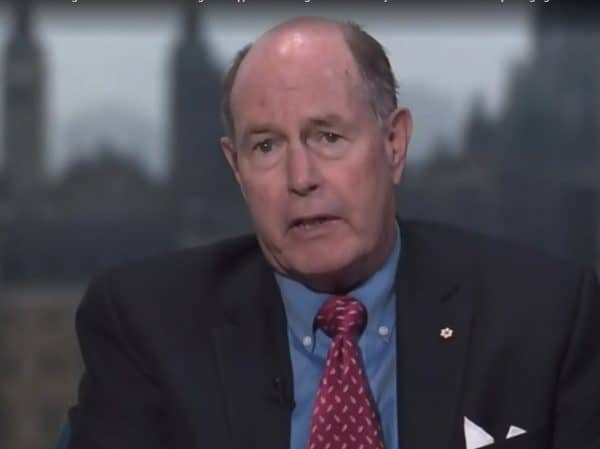
 The federal Liberal government has underlined its intention to make recreational adult-use cannabis legal within a few months, despite concerns that the process is moving too fast.
The federal Liberal government has underlined its intention to make recreational adult-use cannabis legal within a few months, despite concerns that the process is moving too fast.
But however long the lead-up period ends up being, legalization will mean one less black market item and one more industry brought into Canada’s formal economy, and that’s good for all Canadians, says former Bank of Canada governor David Dodge.
Otherwise known as the Cannabis Act, Bill C-45 to legalize the recreational use of marijuana is currently being debated in the Senate, where the timetable for passing the bill plus allowing for a follow up preparatory period for regulators and industry now stands at sometime in August. But that timeline is too quick for provincial authorities to properly set up their regulatory frameworks, say the bill’s critics, who include members of the federal Conservative party as well as members of the Senate.
Recently, the Senate’s Aboriginal peoples committee has come out in favour of allowing more time before legalization so as to give Indigenous communities the ability to establish their own laws and practices for on-reserve cannabis use, saying that a delay until the end of 2018 would be more suitable.
“Many communities are really worried about the potential adverse effects on their members, and especially on their youth, and it may be even worse because of the trauma in their communities,” said Senator Lillian Dyck, chair of the Aboriginal peoples committee.
The response by Prime Minister Justin Trudeau has been to stand fast on the government’s proposed timeline, saying, “We have been working with our partners across the country to make this happen and we are going to be moving forward this summer on the legalization of cannabis.”
But whenever legalization arrives, it’ll be good news for the Canadian economy, says Dodge, who argues that it’s always better to have sectors brought into the regulated system rather than left to forces within the black market.
“We’ve always had underground markets in the country, and one of the things we worried about when I was Deputy Minister of Finance and that we worried about at the [Bank of Canada], indeed, what all authorities worry about, is activity outside the formal structure and we have all believed that things will work better, the economy will work better and the distribution of income will be better if we can bring things into the formal economy,” he said in conversation with Bloomberg BNN.
“So, bringing [recreational cannabis] in, as one other issue that’s happening outside of the formal economy, is overall probably very healthy,” he says.
Opinions vary on how big an impact the legalization of cannabis will have on Canada’s economy, although estimates are that marijuana sales could be between $5 and $8 billion annually, which compares to annual alcohol sales ($25 billion) and tobacco sales ($16 billion).
Leave a Reply
You must be logged in to post a comment.




 Share
Share Tweet
Tweet Share
Share




Comment